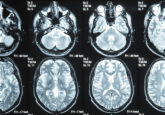Study rules out zinc as a potential biomarker of Alzheimer’s disease

Decreasing zinc levels are a sign of aging, and no change in serum zinc concentration is seen in Alzheimer’s disease.
A recent study has added to the evidence against zinc being used as a potential biomarker in the diagnosis of Alzheimer’s disease (AD), finding that decreasing levels of the metal are instead a sign of aging. The research, led by Blaine R. Roberts from the Florey Institute of Neuroscience and Mental Health at the University of Melbourne (Victoria, Australia), used the Australian Imaging, Biomarker and Lifestyle Flagship Study of Ageing to examine the zinc levels of more than 1000 subjects over the age of 65 and determine if zinc levels in the blood could provide clinically useful information about a person’s risk of developing AD.
A small but significant decrease was found in serum zinc with age; however, no difference was found between males or females, and there was no difference between subjects with or without AD. Additional investigation of a subset of the flagship study using size-exclusion ICP MS reported no significant difference in the levels of zinc bound to proteins in the plasma of AD samples, compared with healthy controls.
The study was published online days before an announcement that Roberts had received a prestigious challenge grant worth US $140,000 to validate a developmental blood test for AD, a project that Roberts hopes will yield greater understanding of how biomarkers and amyloid levels in the brain correlate. Commenting on that news, Roberts said, “We calculate that the blood test we are developing will reduce the cost of patient recruitment for clinical trials by more than half, and help identify specific therapies to treat individuals with the pathology.”
Sources: Rembach A, Hare DJ, Doecke JD et al. Decreased serum zinc is an effect of ageing and not Alzheimer’s disease. Metallomics DOI:10.1039/C4MT00060A (2014) (Epub ahead of print); Zinc ruled out as biomarker for Alzheimer’s disease.





